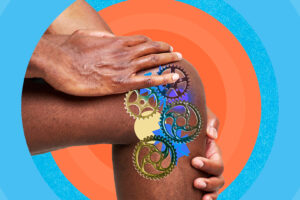Depending on your age and activity level, the body needs different nutrients during different cycles of life in order to do its job. Whether you’re preparing meals for young children or a more seasoned adult eating for health and disease prevention, nutrition contributes a great deal to your overall health.
Unfortunately, the purpose of food has become more of a recreational event than a means to fuel the body. As a result, the U.S. continues to be hampered by obesity and the diseases connected with it. Today, more than one in three Americans are considered overweight or obese.
Whether you are six or 66, it’s never too late to make positive food changes which can reward you with more energy, improved physical and cognitive development, a better mental outlook and a smaller waistline. I’ve outlined the distinct nutritional needs most people need throughout their lifespans:
Children
Growing and active children need more high energy-producing foods in order to fuel physical and cognitive development such as:
- Carbohydrates for energy
- Healthy fats (not trans fats) promote neurological and skin development
- Fruits and vegetables at every meal to support the immune system and overall health.
Adults
On average, most moderately active adult men should consume about 2,000 calories and women should aim for 1,800 daily calories. Nutrition-rich foods should make up most of these calories in order to provide optimal energy, prevent obesity and the onset of chronic disease.
- Focus on protein—beans, eggs, Greek yogurt, chicken, fish
- Antioxidants—think five portions of brightly-colored fruits and vegetables daily.
- Bypass empty calories−sugar, processed foods and alcohol.
Seniors
A slowing metabolism means the overall caloric intake should be reduced. Calories should be devoted to high quality foods to help ward off chronic disease and:
- Maintaining lean muscle tone (mass) by eating lean meats, fish and poultry; low-fat cheese and dairy; eggs; and beans in every color.
- Keeping the body regular by eating whole grains, colorful vegetables and fruits.
- Staying properly hydrated by drinking water throughout the day.
Food changes can also help overcome medical conditions
As an internist, I also use food adjustments to help people overcome health issues. I recently treated an older gentlemen who was suffering with increasingly frequent attacks of gout, a type of arthritis that causes debilitating pain and swelling in the joints. I prescribed a dietary change focused on low-purine foods—low-fat dairy, nuts, fresh fruit and vegetables and grains−and the patient has been gout-free for more than a year.
When it comes to the food you eat, a little effort can go a long way. Even a subtle change, like switching from a white flour bagel to whole-grain toast in the morning, could slash 300 empty calories from your diet and boost your energy. Combine that with daily exercise of at least 30 minutes and you could lose a pound or two a week (which can help you drop a clothing size by the time the season changes.)
CentraState’s Star and Barry Tobias Health Awareness Center provides an extensive menu of healthy living programs designed for children, adults and seniors, including one-on-one nutritional counseling. Find out more by calling 732-308-0570. If you need a family doctor to help manage your family’s health and wellness, CentraState’s Physician Finder offers a list of board-certified primary care doctors or by calling 866- CENTRA7.
Fiola Sowemimo, MD board certified in internal medicine and bariatric medicine, is on staff at CentraState Medical Center. She can be reached at Prime Internal Medicine, located in the Medical Arts Building on the CentraState campus, by calling (732) 252-6688 or visiting drfiola.com.





